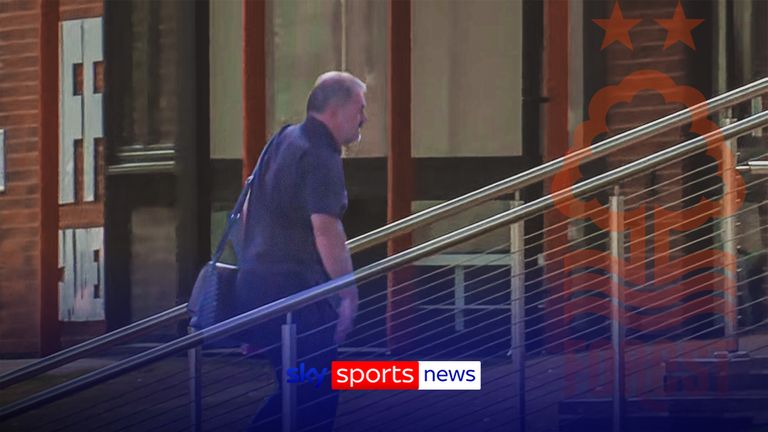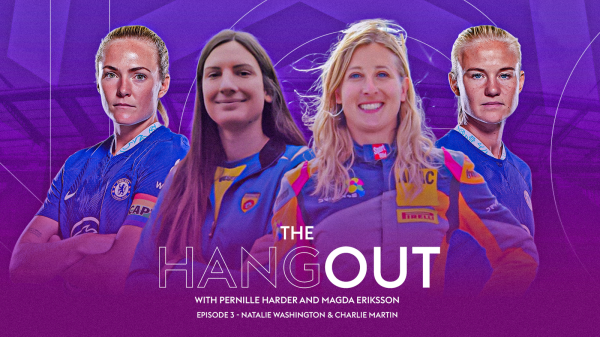
In the very first email she sent to her local football club, Natalie Washington was up front about who she is.
“I reached out and I was completely honest. I said, ‘I’m a trans woman… would it be cool if I came down and started training with you?'”
Had the club’s response back in 2015 been unenthusiastic, it’s highly unlikely that Washington would be involved in football now, let alone talking to two of the WSL’s biggest stars in Pernille Harder and Magda Eriksson.
The Chelsea players are keen to know how it all played out.
Washington continues: “I told the club that I didn’t know how easy it would be for me to play but that I’d just like to get kicking a ball around again.
“And they said, ‘yeah, come down. We don’t know the rules either but we’ll work something out.’
“That was a really important moment for me. Had that reaction been more negative, that would probably have made up my mind that this is football done for me.”
Also See:
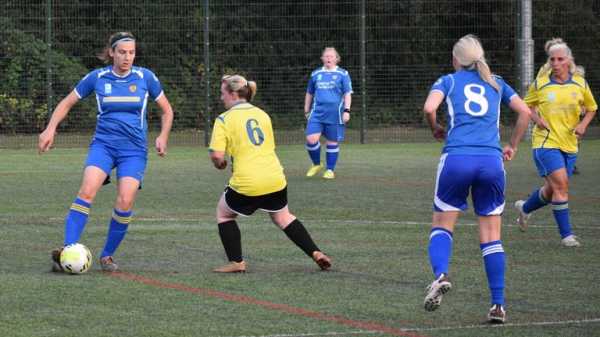
Image: Natalie Washington says both her team-mates and opposition players continue to create inclusive environments in the women's game
The experiences that Washington is sharing on The HangOUT are far removed from those of previous guests Megan Rapinoe and Cesar Azpilicueta, who addressed athlete activism and the power of allyship respectively.
They are both world-class internationals, while Washington plays in the sixth tier of the women’s game in England. Yet her insights are no less illuminating and impactful for Harder and Eriksson.
“I’m imagining it from the other side,” says the Chelsea captain, turning to her girlfriend. “What would it have been like if we couldn’t have been open?”
Going up through the gears
That may be a hypothetical question that’s hooked on sexuality, but any conversation about trans inclusion will always need empathy to really flow.
For Harder and Eriksson, it’s about trying to put themselves in Washington’s shoes, and also in the mindset of a sportswoman from outside of football – racing driver Charlie Martin.
It was at a similar period to Washington, around eight years ago, that she stepped back into the paddock at a circuit as herself for the first time, having had a spell away from the sport she loved in order to transition.
“Motorsport is mixed, so there was no issue for me in terms of being allowed to race,” says Martin.
“But it was a sport where there was no queer visibility. So just like Natalie, I gave it up for about a year because I thought no one would accept me in that space.
“It wasn’t easy, going back. I owe a lot to a handful of close friends who really supported me.
“When I walked back into the paddock that day, they came over to me and gave me a hug.
“I don’t think people necessarily realise the significance of that moment or appreciate how important it was to me. Because I wouldn’t have gone back to motorsport the next year if they hadn’t have done that.”
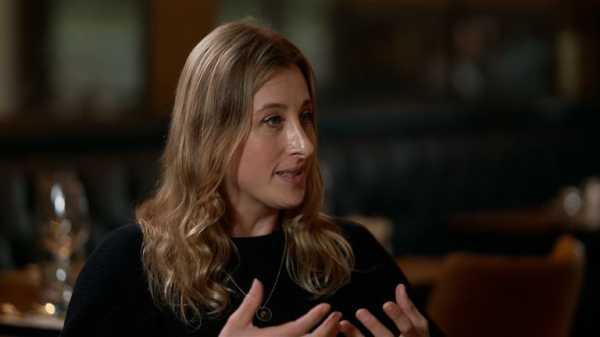
Image: Charlie Martin, who races in the Lamborghini Super Trofeo series, is often invited by businesses and corporations to speak about her story in sport
Since then, Martin has accelerated education around trans identities, and she hasn’t stayed in her lane either. From inspiring a Pride Month activation at Silverstone to appearing in TV documentaries, she is also an in-demand public speaker and describes herself as an LGBTQ+ activist.
Her sporting passions include surfing, trail running and boxing, but her ultimate goal is to become the first driver who is trans to race at the iconic 24 Hours of Le Mans.
She hopes to get closer this year when she competes in the Lamborghini Super Trofeo Europe championship, having enjoyed a successful series in the North American equivalent in 2022.
Twitter Due to your consent preferences, you’re not able to view this. Open Privacy Options
The contrast in her confidence compared to before her transition could hardly be greater. “It’s helped me to unlock my potential because I really didn’t know who I even was.
“That’s something so fundamental that it filters into all aspects of your life and behaviour. Every decision you take somehow comes back to who you are as a person, how comfortable you feel in your own skin.
“You can’t be the best person that you need to be when you doubt yourself on the most basic level.”
Martin makes the analogy to working on a computer where an unseen background program is slowing the system down. Once she accepted herself and could reclaim the energy that was being unnecessarily expended, the future was full of possibilities.
On her website, she’s summed it up in a motto: “Your mountain is waiting, so get on your way.”
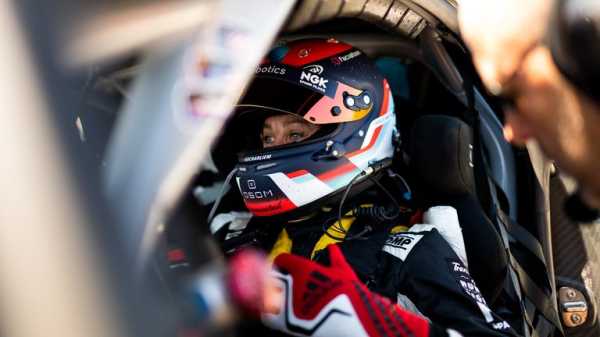
Patience and policies
Up until her late 20s, Washington waited at the foot of her personal mountain, compartmentalising her gender identity while going about her day-to-day life.
When difficulties arose in her personal relationships and in her professional career, she realised the extent to which she was limiting her own mental capacity.
“I didn’t feel able to learn and grow through vulnerability, because I was trying to hide this thing about myself that I wasn’t prepared to reckon with.
“Being able to get all that out of the way, to be absolutely authentic, and say ‘this is me’ – that really was a release. I’m markedly more effective now because I’m no longer trying to manage this piece of myself that I didn’t want to admit to.”
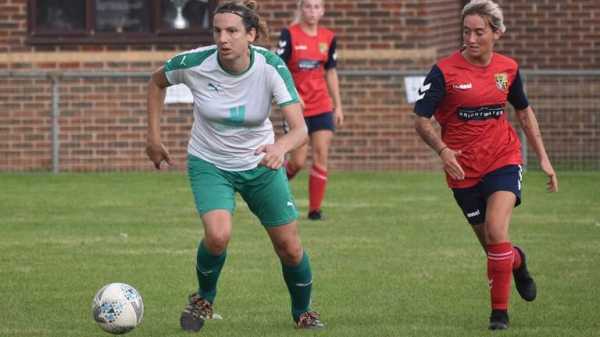
Image: Natalie Washington currently plays at the sixth tier of the pyramid in the English women's game
So where did football fit in? Washington had been a fan and a player before beginning her transition. The enjoyment she got from watching England’s run to the semi-finals at the Women’s World Cup in Canada in summer 2015 inspired her to ask her local club about playing again.
At that time, the Football Association’s ‘Policy on Trans People in Football’ was only a few months old. It introduced a system whereby players over the age of 18 who are trans could apply to participate in their affirmed gender by submitting medical information to show their testosterone levels were within the corresponding natal range. Each case would be assessed by The FA’s Equality Manager and Head of Medical Services.
It took around 18 months for Washington to get permission to play competitively, during which time she took part in training and became a valued member of the club. She has found the women’s game to be overwhelmingly welcoming, bar a couple of isolated incidents in which opposition players have targeted her.
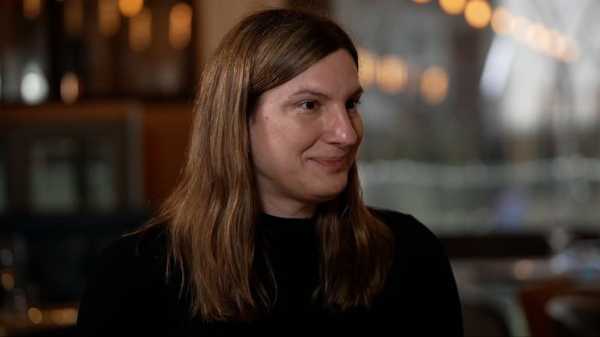
Image: As lead of the Football v Transphobia campaign, Washington is helping clubs, county FAs and governing bodies to learn more about trans and non-binary inclusion
The wider sporting climate is shifting, however. Trans inclusion policies are tightening and in some instances, governing bodies are imposing blanket bans on trans women from competing in women’s categories.
In the latest development in England, the Equality and Human Rights Commission – parliament’s human rights watchdog – has responded to a request for advice from the Equalities Minister Kemi Badenoch on how to change the official wording of the Equality Act.
In its current form, this legislation allows for trans people to be excluded from sporting competitions when it is shown to be “necessary” to ensure fairness and safety. The EHRC has suggested that using a biological definition of sex in the text of the Equality Act “would mean that organisers could exclude trans women from women’s sport without this additional burden” of having to demonstrate necessity.
Should the advice ultimately be acted upon by the government, there would almost certainly be a knock-on effect on sports policies.
So far, football has largely avoided the levels of scrutiny that rugby, swimming, cycling and athletics have been placed under in this regard. FIFA has been monitoring the global developments on trans inclusion carefully and earlier this month, its Chief Women’s Football Officer Sarai Bareman told Australian media: “We have to make sure that when FIFA does release our updated regulations, that we get it right.
“So we’re taking our time, we’re consulting and we’re making sure of our choices as what we do now at FIFA is going to impact generations ahead of us. It’s a big responsibility.”
The FA says it is continuing to engage with both FIFA and UEFA as well as other stakeholders in a review of its own policy, while the FA of Wales is taking a like-minded approach.
‘There’s no accountability online’
Having listened to Washington and Martin explain how meaningful it was to each of them to find inclusive sports spaces, Eriksson expresses her sentiments on the topic.

Image: Magda and Pernille believe everyone should get to 'feel the joy' of being included in sport
“It makes me so sad, the cases that I do hear where people stop playing a certain sport because they don’t feel welcome or included, or they aren’t included,” says the Sweden international.
“That makes me genuinely sad and angry, that some people are robbed to feel the joy of sport because of who they are and what they identify with.
“I think it’s so important that we keep sport as inclusive as possible.”
Since 2019, Washington has been campaigning for football to develop more trans-inclusive strategies, while also helping to grow awareness across the game of how to challenge discrimination. She leads on the Football v Transphobia initiative which recently held its annual Week of Action.
Twitter Due to your consent preferences, you’re not able to view this. Open Privacy Options
“Playing is part of the picture, but a lot of people are coming to watch games so we do work on training stewards to use inclusive language, and what good facilities might look like.
“Perhaps it’s a person’s first game after coming out as trans – we help to pair them up so they feel safer. We do work with supporters groups, coaches, and the media, and we try to raise the profile and the voices of trans and non-binary people in the game.”
It’s another reason why Eriksson and Harder wanted to talk to trans women in sport on The HangOUT, as both players are conscious of the “noise” and negativity on social media that makes it harder to hear from the minority group that is most affected.
Harder asks her guests about the coping mechanisms they use when confronted with hurtful comments online.
“It is really upsetting when you hear and read things like that,” says Martin. “I just try to take a step back, and focus on the relationships and interactions I have in the physical world.
“No one’s ever been unkind to me in the physical world in that way and I think there’s a lot to be said about that. People feel free to write what they write when there’s no accountability online.”
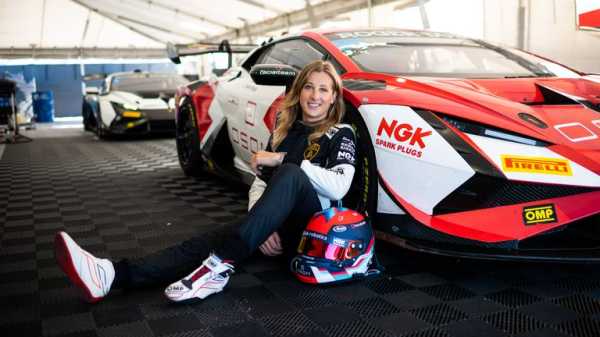
Image: Martin was a Lamborghini Super Trofeo vice-champion in the North American series last year and will race in Europe in 2023, starting at Circuit Paul Ricard in June (images: Jamey Price Photo)
It’s a tactic that’s also employed by the Chelsea players when they are met with “irrational” criticism for their performances on the pitch.
“Focus on the feedback and the voices that matter to you,” agrees Eriksson. “You know the trolls will always be there. They don’t know you.
“Tell your individual stories for people to listen to you as human beings, with all the emotions that come with that.
“I hope that the more these stories that come out, the more we can create a better understanding.”
The power of connection
At the end of March, on Trans Day of Visibility, the LGBT+ young persons charity Just Like Us released new independent research that demonstrates the impact of meeting and interacting with transgender people.
In a survey of nearly 3,700 adults aged 18 to 25 by market research company Cibyl conducted in January, 74 per cent of those who described themselves as “not supportive” of trans people said they did not personally know anyone who is trans.
Twitter Due to your consent preferences, you’re not able to view this. Open Privacy Options
That’s perhaps unsurprising when you consider that the recent Census data from England and Wales shows that trans people make up just 0.5 per cent of the population.
Eriksson asks how her and Harder can be better allies to the trans community.
“Hearing people’s stories,” says Martin. “There’s no substitute for actually understanding people by meeting them face to face.”
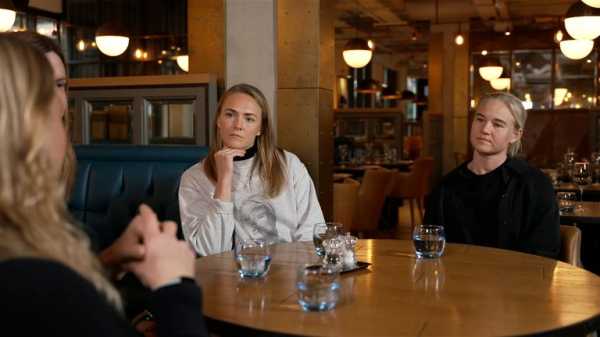
Image: The Chelsea players hope their HangOUT conversations will improve understanding and help to grow allyship
Washington believes it’s also about challenging misinformation and discrimination, particularly when trans people are not in the room.
“When you hear things that you think are probably not true or are an unfair reading of a situation, then speak up and say that it’s not your experience.
“Being vocal where possible about a belief that trans people have a right to exist in society, that our identities are real, and that we’re not a danger. That’s really powerful.”
When her local football club opened up the pathway for her to play again back in 2015, it was an example of allyship and she has heard of similar attitudes up and down the pyramid.
“The women’s game isn’t automatically inclusive – it’s inclusive because people have put in the work to do the right things.
“We need to keep it that way by making sure we see what’s working, as participation and money increases.”
Creating space for conversations such as that had on The HangOUT is something Washington appreciates too.
“It’s about giving experiences of inclusion like ours a platform, so that people can learn from it.”
Sourse: skysports.com

